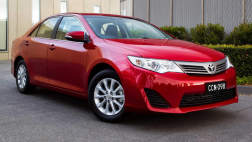Joshua Brown has just joined the same unfortunate page in the history books as Bridget Driscoll.
She was the first person to die in a car accident and he is the first person to die in an autonomous car.
When Driscoll was killed in Britain in 1896, as a pedestrian struck by a car on a demonstration drive in London, there was a huge outcry about the speed and dangers of the then new technology — even though the car in question was limited to 4mph (6.4km/h).
Now there are similar, though even bigger, questions about the Tesla that Brown was driving and autonomous cars in general.
There is more and more talk about keeping autonomous vehicles corralled until the many technologies involved are properly proven.
Brown's fatal crash was in May in the US but only lately have the circumstances been confirmed. His Tesla, running in Autopilot mode, apparently misread the white sides of a turning truck as the brightness of the sky and failed to brake.
Every major car brand is working on some form of self-driving vehicle. The likely timeline puts them into mass production in about 2025 after tentative steps over the next four-odd years.
Tesla is one of the leaders and is doing some good work, as it is also doing on fully electric motoring, but each path isn't without its perils.
Some of the smartest minds in motoring are still not convinced of the wisdom of mixing self-driving cars with people power in the real world. There is more and more talk about keeping autonomous vehicles corralled until the many technologies involved are properly proven.
Would you trust a self-driving car, or would you rather always be in control? Tell us what you think in the comments below.





.jpg)

.jpg)


_0.jpg)
 (1).jpg)

.jpg)
.jpg)


.jpg)
.jpg)
_0.jpg)





.jpg)



